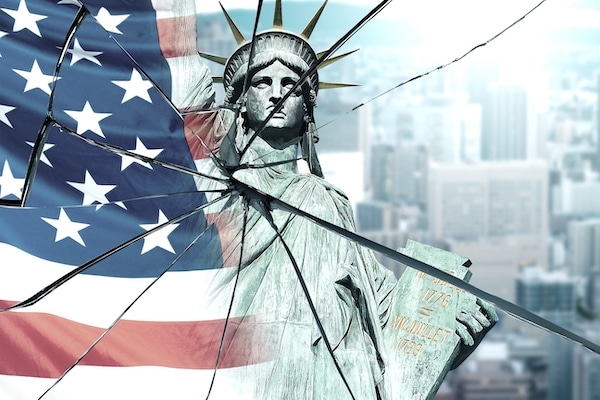by Jeff Thomas, International Man:

Like waves on the ocean, countries tend to go through economic cycles.
First, we have the micro cycles, which tend to rise and fall every few years, but may last a decade or more. Then we have the macro cycles, which tend to take hundreds of years.
In a macro cycle, a nation begins to thrive economically, when the people of that country adhere to a strong work ethic. They invest their money and toil into the economy, make a profit, then either save, purchase goods, reinvest, or a combination of the three.
TRUTH LIVES on at https://sgtreport.tv/
When the great majority of the people do this, the country thrives economically. The greater the economic freedom (i.e., the less governmental oversight and regulation), the more the country thrives.
But this never lasts forever. The eternal fly in the ointment is that governments seek continually to increase their control over others.
First, they focus on the increased control of their own people through regulations, but invariably, they see the opportunity for broader control, through the domination of other nations. They then invade those nations.
Warfare is the costliest venture that nations enter into, and as such, it’s almost always a mistake. But the zeal to have greater power often brushes that fact aside, and leaders choose to invade other nations.
In almost every instance, they fail to underestimate the resistance from the invaded nation, and very quickly, the cost of the warfare doubles and redoubles, over and over again.
Invariably, the leaders then borrow money to keep the war going. Sometimes, they achieve victory in this manner, but more often than not, they fail. They find that the day comes when they must either sell off major assets to pay their debt, or face economic collapse.
Case in point: In 1800, Spain was the dominant empire of the world, having successfully colonized South and Central America and stripped them of a fortune in gold and silver over the course of three centuries – from 1500 to 1800.
But despite this, decades of war with other European powers left Spain broke. Charles III did what leaders always do – he borrowed heavily and debased the currency. He issued fiat currency in the form of paper pesos and used this currency to fund the Spanish colony of Louisiana.
This was meant to be a temporary measure, but as time dragged on, the peso steadily lost value, then became utterly worthless.
Charles, with no economic wiggle-room left, sent the ship El Cazador to the Louisiana colony to pay off debts. Unfortunately, El Cazador sank in 1784 in a storm, taking 450,000 pesos in silver coins down with her.
When Carlos IV became king of Spain, there were few good options. Rather than give up his throne, he offered to sell Louisiana to France’s Napoleon.
Napoleon took advantage of Spain’s national fire sale and bought Louisiana for a song.
Read More @ InternationalMan.com



